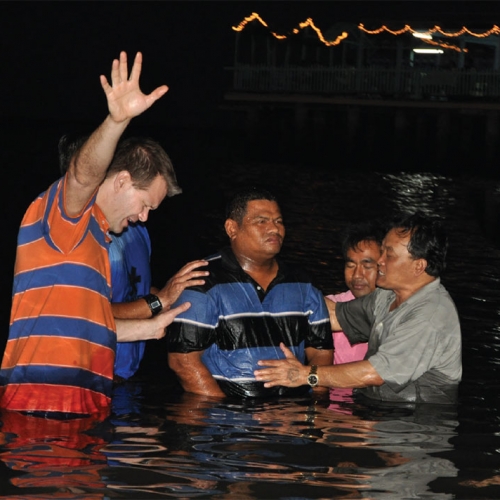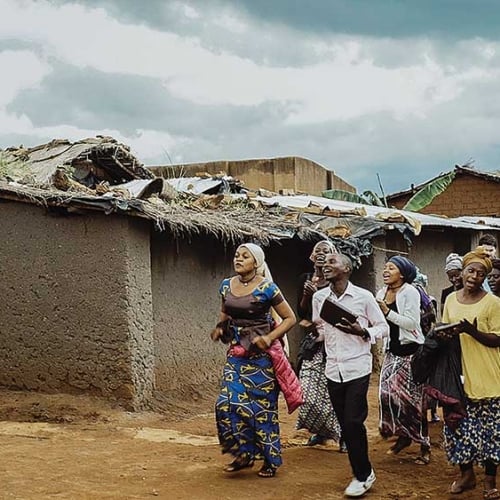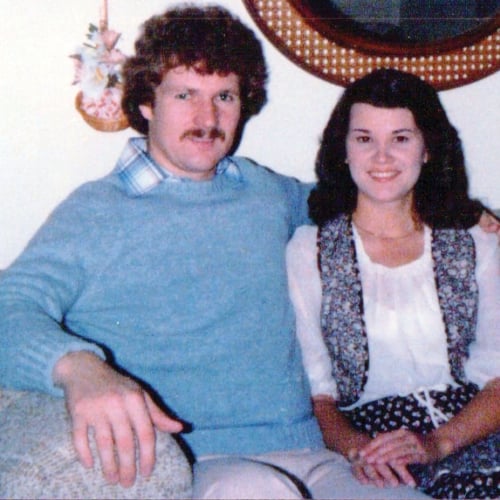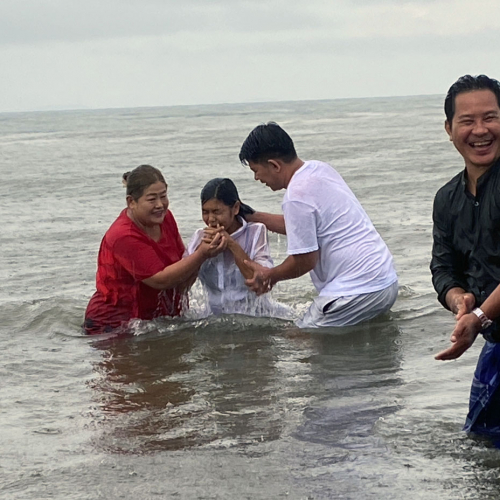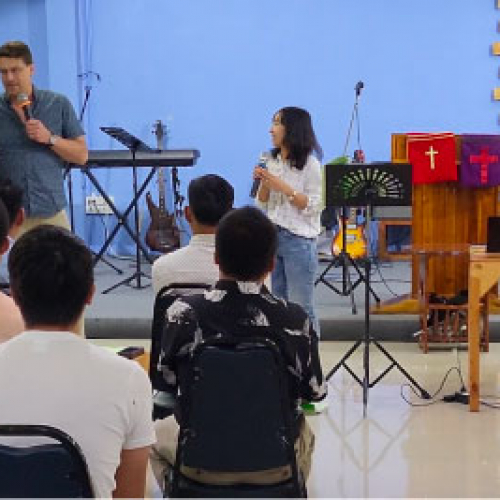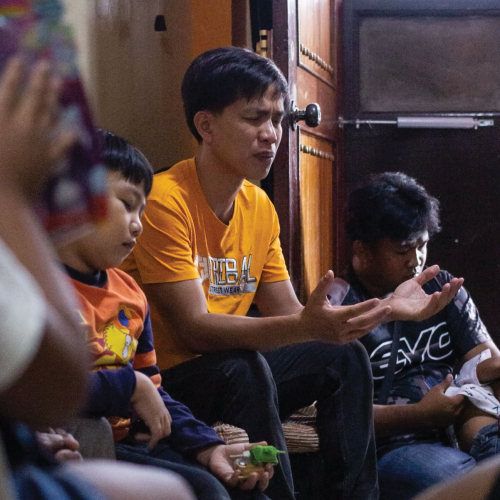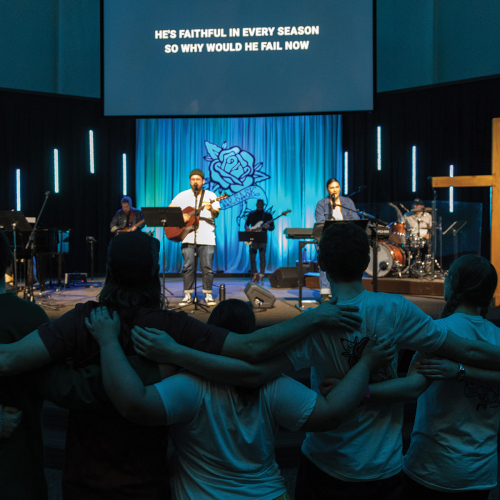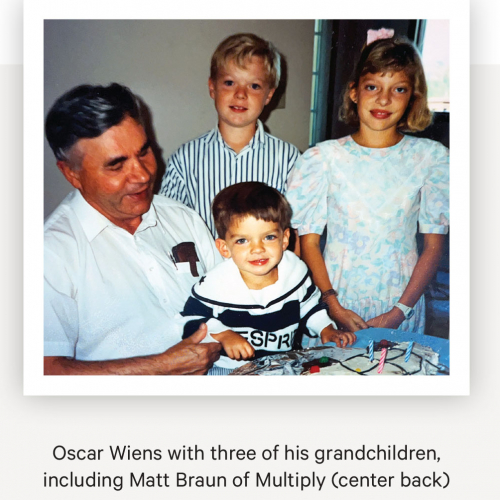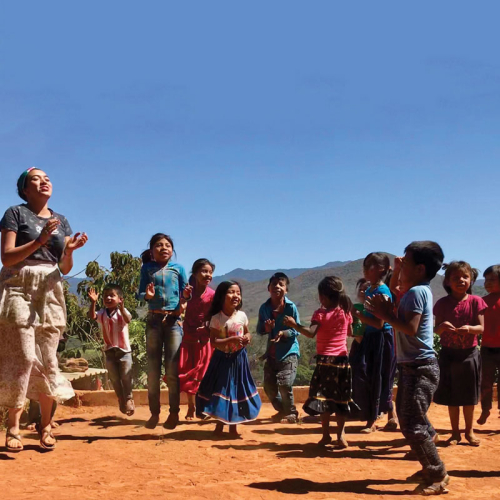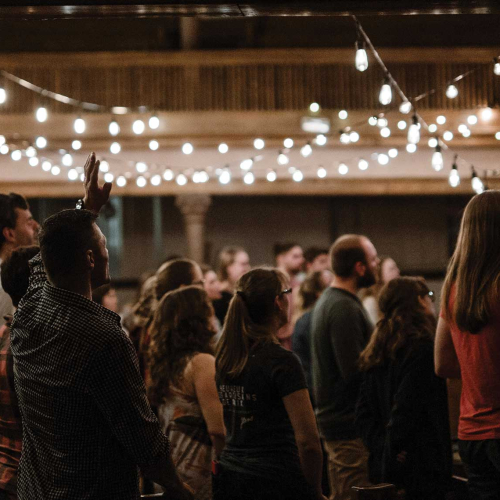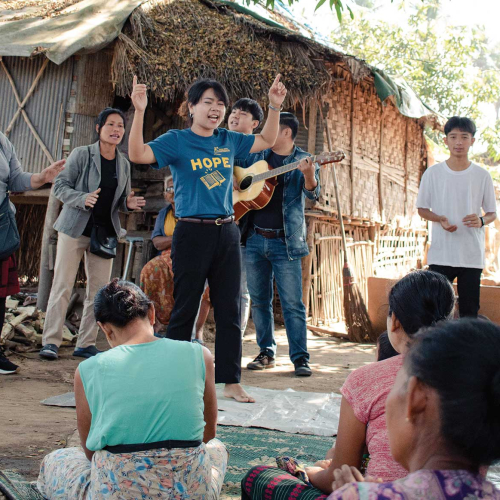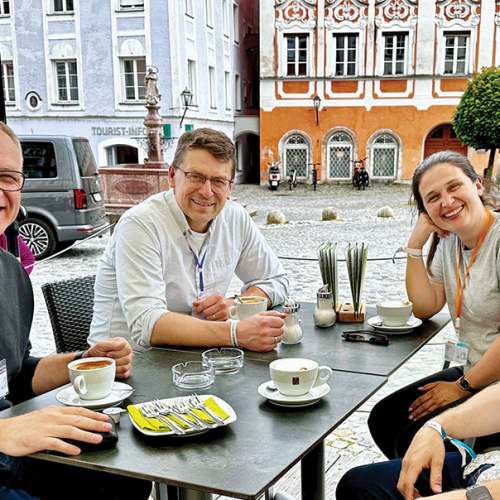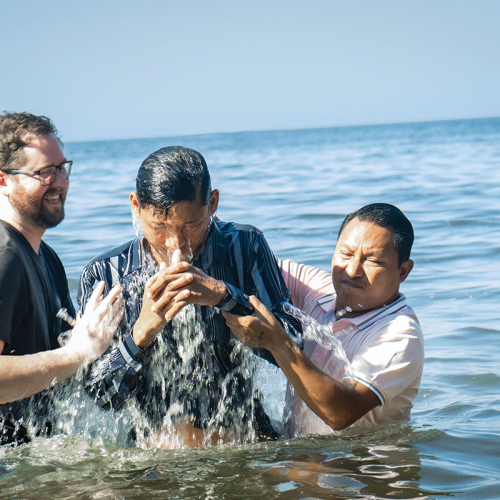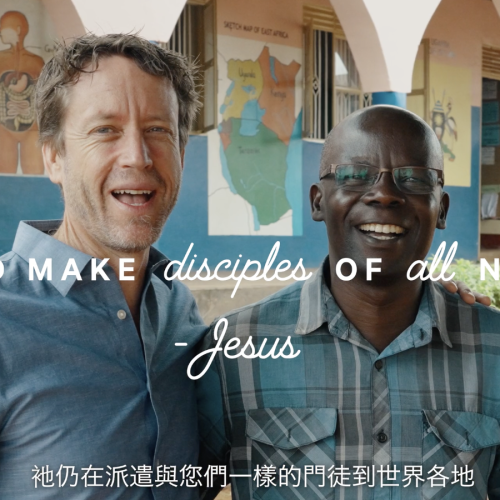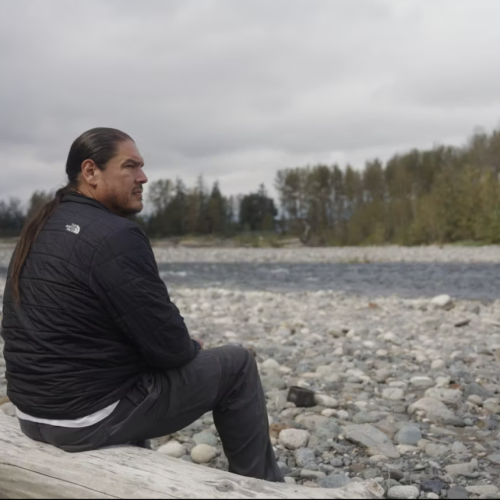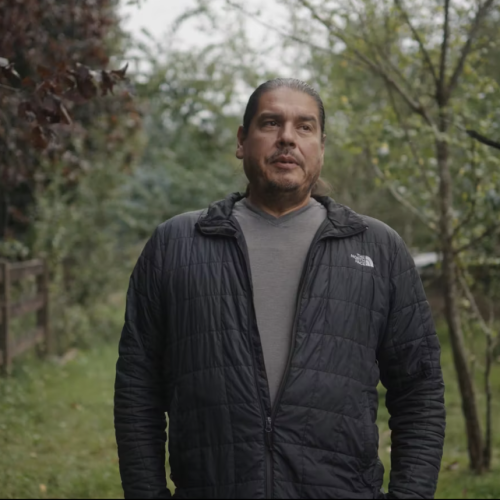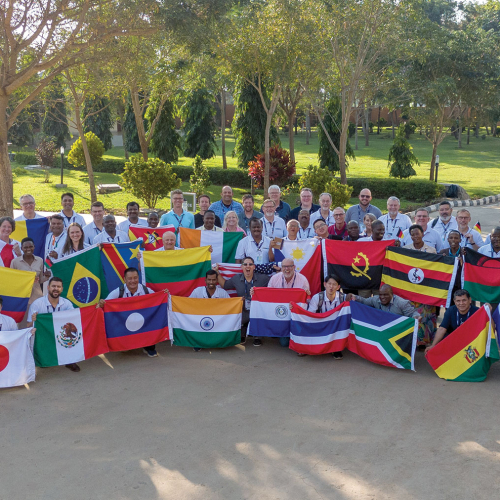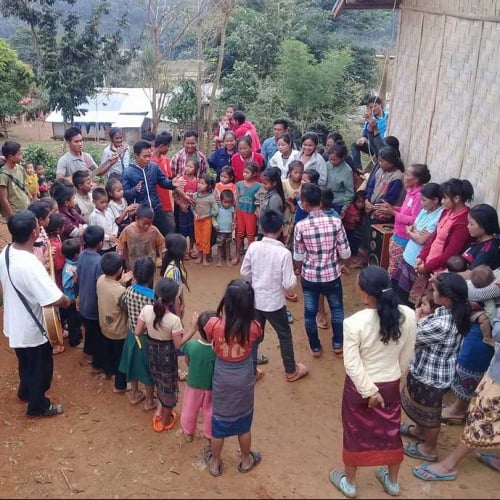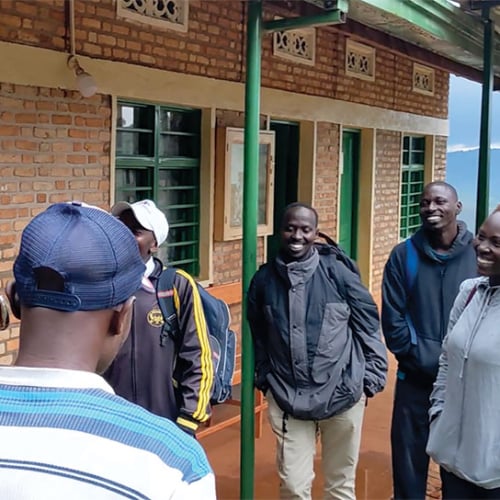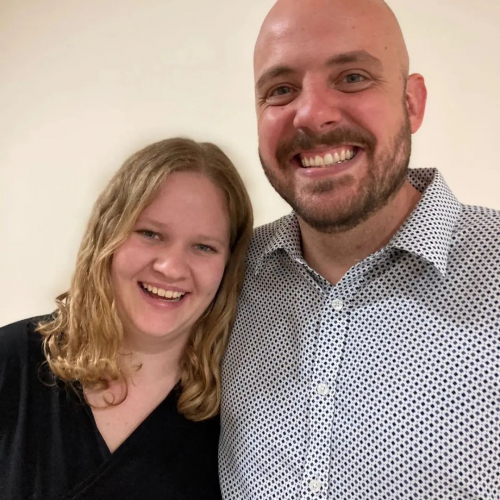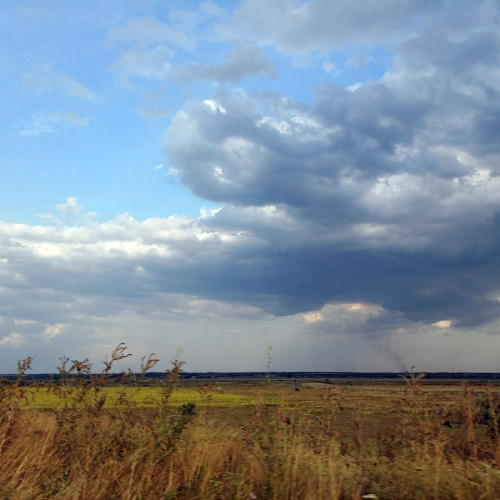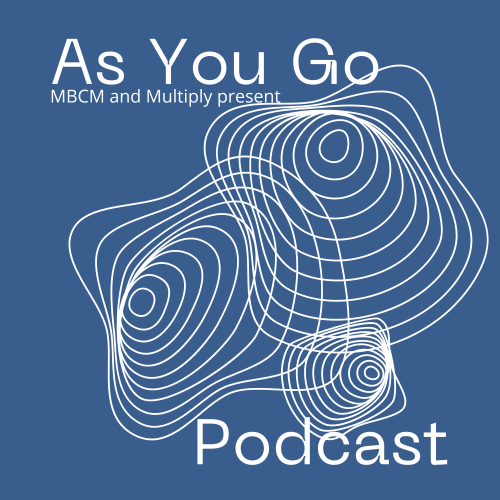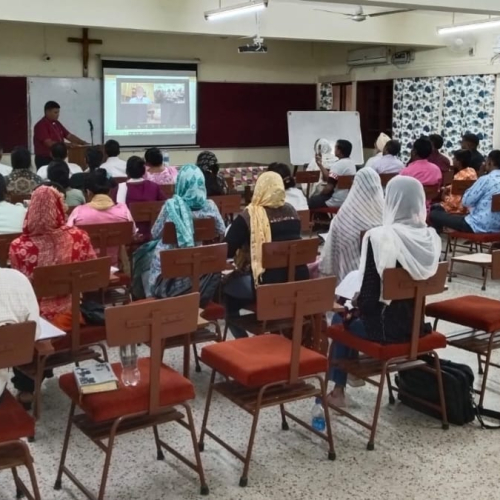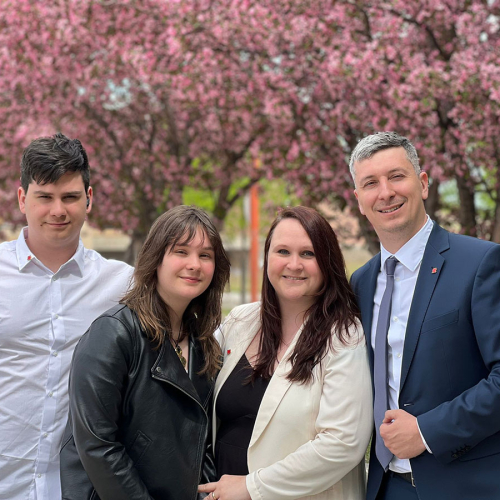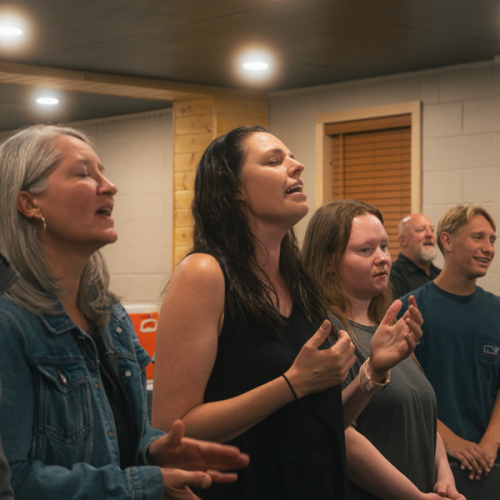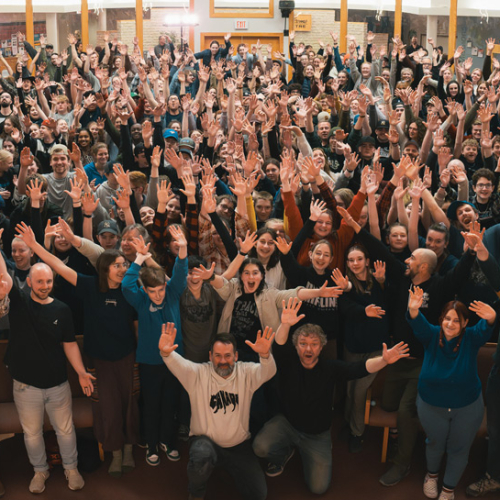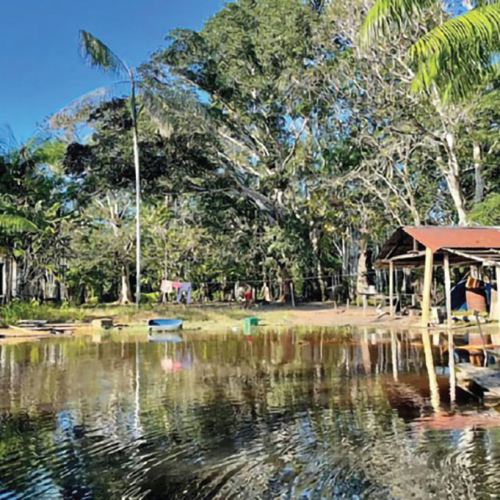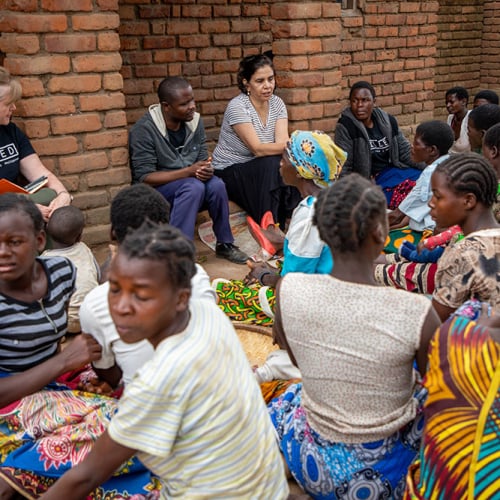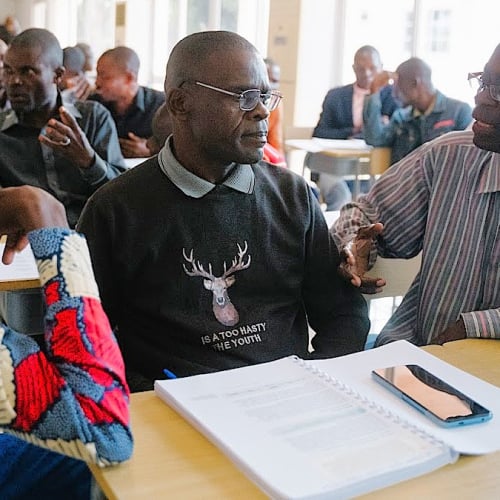“What is God’s calling for us? What does this look like? How do we work that out?”
David (alias) and I were on a video call, separated by thousands of miles, discussing Multiply’s value of holistic and contextual ministry.
David is the director of Multiply’s global training, responsible for developing and implementing the Mission Leadership Training (MLT) curriculum that is being used around the world. He has served for many years in a restricted region.
“Holistic and contextual are two different but related dimensions of mission,” David observes. “One of the tensions we face is that Mennonite Brethren have historically carried both a very strong evangelistic, church planting DNA, and at the same time, sought to be holistic in addressing the needs of people.”
To illustrate this, he describes how the early Mennonite Brethren mission workers in India preached the Gospel in villages and also established many schools and hospitals. This was all part of what it meant to go and serve on Christian mission.
“The challenge of holistic ministry is to get beyond the bipolar tension of proclaiming/evangelism and doing/serving,” David explains. “In the West, we tend to perceive these two dimensions of mission on a continuum between two poles and we keep trying to figure out how these two poles relate—should they be balanced, should one be prioritized…?”
David suggests that we need an entirely different picture—rather than perceiving our witness as a continuum between two poles, we could envision our witness as a circle. The circle has three “pie pieces”: what we say (evangelism), what we do (service), and an additional dimension—who we are (our life and testimony). All three are essential for effective and biblical ministry. And as a circle, the starting point can be anywhere. However, our witness must include all three. 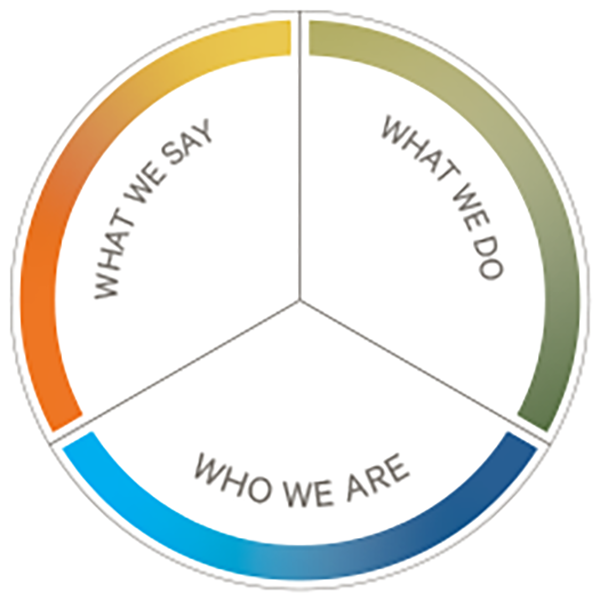
David highlights how the early church spread the Word while also caring for needs and bearing witness with their lives through relationships. “Holistic mission involves all three dimensions. We must be engaged fully as witnesses to Jesus,” David says.
This dovetails well with the practice of contextual ministry—adapting the message of the Gospel across cultures in order for the good news of Jesus to be heard and understood.
“Contextualization,” David reflects, “is the question of how we enter into another context in order to witness to the Gospel. Jesus’ incarnation is the model.” He draws out four key points from John 1.
First, the “Word became flesh” (John 1:14). “At its heart, ‘flesh’ refers to our humanness and weakness—the capacity to suffer. Jesus came and identified with our weakness. He knows what it means to be human. Part of contextualization is not just what we say, but it’s identifying with people.”
David is convinced that, ironically, it is through our weaknesses rather than our strengths that we will be able to connect with others and point them to Jesus. “How is God going to use us? Primarily through our weaknesses.”
The second important truth is that Jesus “lived among us” (John 1:14). This should be our example of how to share the Gospel. “We need to become part of the neighborhood, actually living among people. It’s not from a distance.”
This drives Multiply’s long-term, cross-cultural mission strategy: learning language and culture, coming in and being part of a community.
Third, Jesus was “full of grace and truth” (John 1:14). “This is critical for contextualization,” David says. “There’s no condemnation. Jesus offers grace but he also offers the truth.”
David notes that Christians tend to lean in one direction or the other. Jesus needs to be the guiding focus. “We’re not simply accommodating to culture, but we come in as learners and with lots of grace that frames how we interact. The Gospel is also a call for repentance and transformation—this requires speaking truth.”
The last point David shares is that Jesus came to “explain the Father” (John 1:18). He reveals, reflects, and illustrates who God really is. “Contextualization is not simply trying to bring peace and be part of a community. It must point to the Father and his invitation to be reconciled with him.”
This is how and why Christ came into the world. We need to follow his example.
As we prepare to conclude our video call, David adds, “There’s another dimension. Friendship is the bridge across cultures in a way that nothing else can be. When Jesus says, ‘I no longer treat you as servants, but you are now my friends,’ (John 15:14-15) that opens up a way of relating that goes beyond duty.” David offers Paul as another example, listing a few of his many friends in ministry: Pricilla and Aquilla, Timothy, Titus, Luke...
“How are you engaging with people?” David concludes. “Seeing others as friends builds relationships. Out of that our whole lives are a witness to Jesus.”
David’s insights are a reminder of the complex, challenging, yet essential focus of Multiply’s ministry. The questions he poses also provide us with an opportunity to prayerfully consider our personal interactions with the world: What is God’s calling for me? What does that look like? How do I work that out? How am I engaging with people? How is God going to use me?
How is God going to use you?
“Again Jesus said, ‘Peace be with you! As the Father has sent me, I am sending you’” (John 20:21).
PRAY
Ask God to give you opportunities to engage with people, build new friendships, and point others to Jesus.
